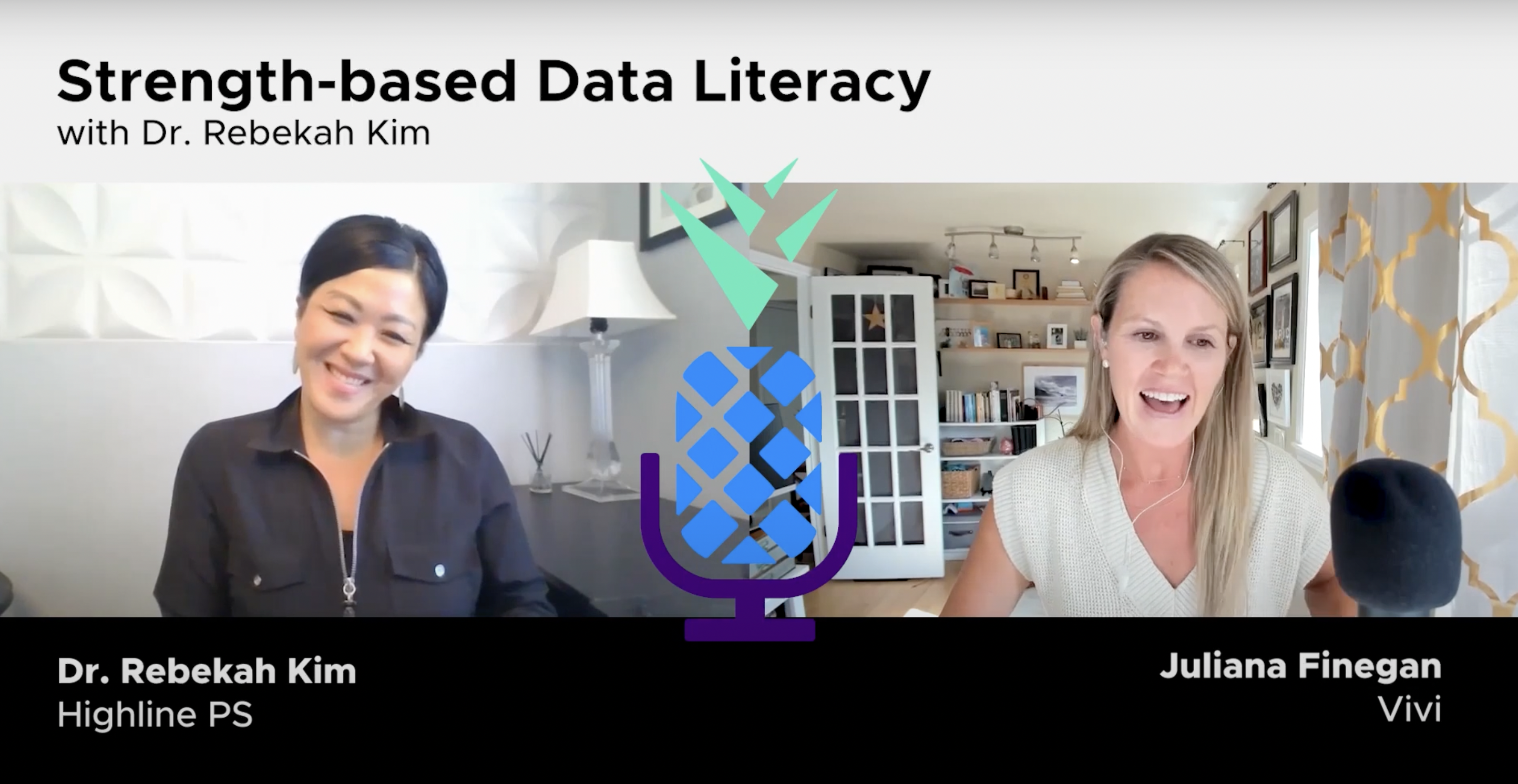
In the latest episode of “Educator Pineapple Podcast,” host Juliana Finegan is joined by Executive Director of System Improvement for Student Success at Highline Public Schools, Rebekah Kim. The pair discuss Kim’s experience as a proud second-generation immigrant from South Korea and fostering data literacy as a driving force for creating learning equity in the classroom.
Growing up a second-generation Korean immigrant isn’t just a point of pride for Rebekah Kim — the experience has served as a north star for her work as an educator. As one of the only Asian families living in Milwaukee in the eighties, Kim said she developed a passion for diversity and equity from an early age based on her family’s experiences.
This influence would carry over into her professional life, where she has served families in diverse districts and learned their stories to identify strengths and challenges around how to deepen family engagement and meet the educational and social emotional needs of her students.
“I seek to see people and learn their stories,” explained Kim. “And I think that really compels me as an educator, to be driven by my core values around diversity and equity. It’s an area that I continue to seek to sharpen, but it is something that because of my personal experiences, continues to compel me to want to serve families.”
Today, Kim acts as the Executive Director of System Improvement for Student Success at Highline Public Schools in Burien, Washington. Before her current role in the Central Office, Kim spent 12 years as a building principal, where she worked to build culture shifts to a more innovative mindset to differentiate the varying learning needs of her 700+ students as the first elementary school to move to a 1-to1 learning model more than 8 years ago.
Eventually, Kim incorporated her learnings alongside her doctoral studies and funneled her action research into promoting data literacy, an area she never imagined dipping her toes into as a building principal. She brings her equity and leadership lens into the work that she leads around system improvement for student success.
“It was an area where I really wanted to start owning my own learning to enrich what I was doing in the way that I was supporting data and assessment in our district,” Kim said. “One of the opportunities that I’ve helped lead is around the multi-year journey to build a strength-based staff and student profile. Through this, I am able to serve the community and our students to create and support ways in which we look at our students holistically. Let us not define our students by high-stakes accountability measures like their discipline, their attendance, and their test scores.”
By focusing on metrics that include a student’s strengths, skills, and social and emotional wellbeing, educators are able to move beyond seeing a student as solely their grades or behavior. Once completed, these profiles will support more differentiated and strength-based approaches for all students. Additionally, using multiple forms of data to inform and interrogate root cause analysis of disproportionality such as discipline of specific race groups is an example of ways to use data with an equity lens that Kim and her team are currently navigating to support system wide change.
Listen to the full podcast with Rebekah Kim here or watch the video below.



